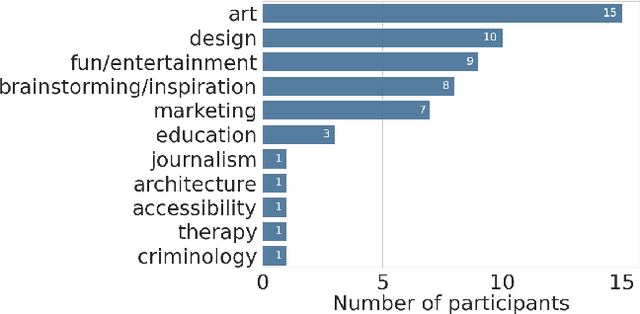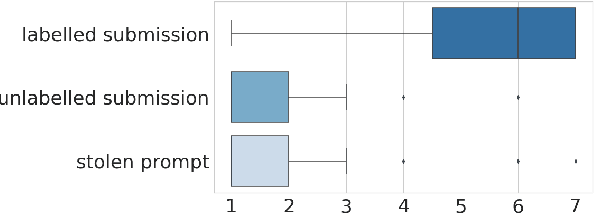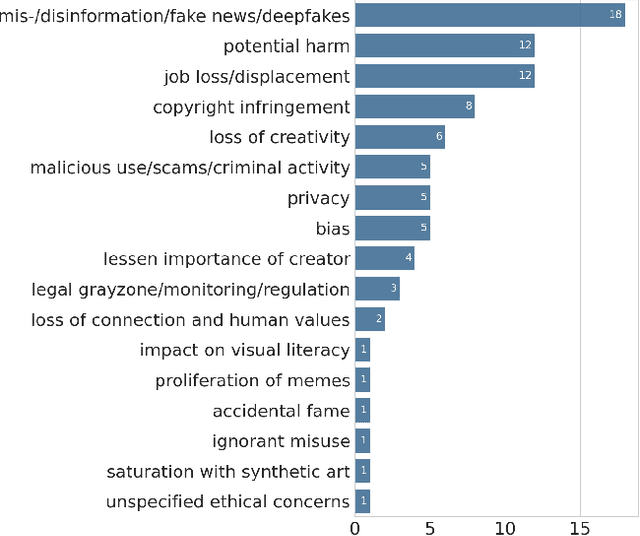Johanna Silvennoinen
Artworks Reimagined: Exploring Human-AI Co-Creation through Body Prompting
Aug 10, 2024



Abstract:Image generation using generative artificial intelligence is a popular activity. However, it is almost exclusively performed in the privacy of an individual's home via typing on a keyboard. In this article, we explore body prompting as input for image generation. Body prompting extends interaction with generative AI beyond textual inputs to reconnect the creative act of image generation with the physical act of creating artworks. We implement this concept in an interactive art installation, Artworks Reimagined, designed to transform artworks via body prompting. We deployed the installation at an event with hundreds of visitors in a public and private setting. Our results from a sample of visitors (N=79) show that body prompting was well-received and provides an engaging and fun experience. We identify three distinct patterns of embodied interaction with the generative AI and present insights into participants' experience of body prompting and AI co-creation. We provide valuable recommendations for practitioners seeking to design interactive generative AI experiences in museums, galleries, and other public cultural spaces.
Perceptions and Realities of Text-to-Image Generation
Jun 14, 2023



Abstract:Generative artificial intelligence (AI) is a widely popular technology that will have a profound impact on society and individuals. Less than a decade ago, it was thought that creative work would be among the last to be automated - yet today, we see AI encroaching on many creative domains. In this paper, we present the findings of a survey study on people's perceptions of text-to-image generation. We touch on participants' technical understanding of the emerging technology, their fears and concerns, and thoughts about risks and dangers of text-to-image generation to the individual and society. We find that while participants were aware of the risks and dangers associated with the technology, only few participants considered the technology to be a personal risk. The risks for others were more easy to recognize for participants. Artists were particularly seen at risk. Participants who had tried the technology rated its future importance lower than those who had not tried it. This result shows that many people are still oblivious of the potential personal risks of generative artificial intelligence and the impending societal changes associated with this technology.
 Add to Chrome
Add to Chrome Add to Firefox
Add to Firefox Add to Edge
Add to Edge